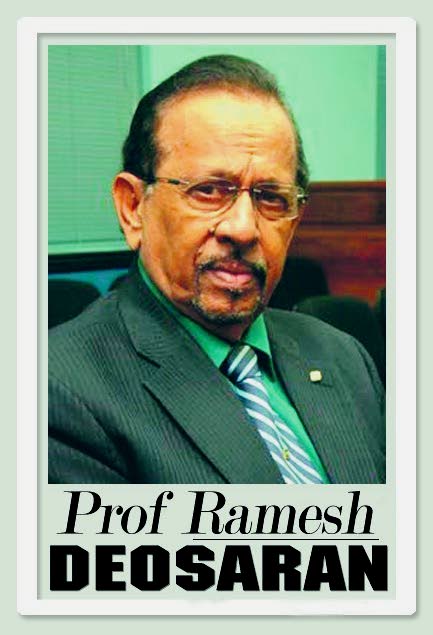Social justice crusades

During the last week of the covid19 lockdown, I had the opportunity to hear speeches and interviews by some very well-known figures – Martin Luther King, Jr, Louis Farrakhan, Mahatma Gandhi, John Kennedy, Adolf Hitler, Winston Churchill, Eric Williams, Dr Keith Rowley, Kamla Persad-Bissessar and, of course, Donald Trump.
Three things struck me. One is the effort by such public figures to persuade people towards their views with varying degrees of success. Two, how difficult, in fact often impossible, it is to change people’s opinions even when faced with evidence-based facts. Three, how established interests often resist the enlightened reforms required for social justice.
One of the blockades is prejudice, particularly so in racial and political matters. That is, when faced with an opinion, the mind finds itself already filled with an emotionally-embraced opinion on the matter. In controversial matters, such people get stubbornly stuck with their feelings which get more entrenched when faced with opposing views. As I listened to Martin Luther King Jr, for example, I wonder why the changes he so eloquently called for failed to materialise. That is beyond civil rights legislation. The law is necessary but never sufficient for racial harmony. Facts and evidence do not always achieve desired results. The widespread street protests during the past month in the US and elsewhere face divided interpretations. Because of its challenges, social justice crusades often attract opposition, thus contributing to added frustration and extremism.
In 1963, Nation of Islam member Malcolm X boldly declared that “The negro doesn’t need more laws. There are enough laws in the books. Why doesn’t the white man need civil rights legislation?” Frustrated with persistent discrimination and police brutality, he said it is either “the ballot or the bullet.” At 39, he died from a bullet wound in 1965. At the funeral of George Floyd who was killed by a Minneapolis police officer, black activist Rev Al Sharpton pleaded that America “lift its knees from the necks of black people.” And not unexpectedly, the alternatives emerged, especially through Fox television.
As example, in his new book, Hate Crime Hoax, black Prof Wilfred Reilly says there is no “systemic racism” in America as Rev Sharpton, Nation of Islam and even Luther King Jr claimed. He said that “fatherlessness in the black family is a big problem.” The divisions are growing but not enough to stop the all-round reform efforts, especially in police brutality and misguided law enforcement. Policing is not theatre-show or public relations but the restrained exercise in public safety, warned a retired police chief.
Will the legal reforms be accompanied by changes in the minds behind them? Our Catholic crusader Leela Ramdeen says the “racial problem” really starts from the heart. This implies it is ultimately a psychological, even a spiritual challenge. In this social justice crusade, to what extent would the establishment reaction help derail the message or thicken the divisions rather than bringing solutions Martin Luther King Jr prayed for.
In their anti-racism speeches, crusaders Martin Luther King Jr and Mahatma Gandhi, sought to bring light to a darkened world. Gandhi, was hounded, jailed and insulted in his struggle for independence from imperial Britain. Like Luther King Jr, he was a leader in the worldwide peace and justice movement. He struggled unsuccessfully for peace between same-raced Hindus and Muslims, struggled to avoid the violent separation between India and Pakistan – to no avail. He was killed by an assassin’s bullet in 1948.
Rev King gave one of the most inspiring speeches in civil rights history on April 3, 1968. Among his “dreams,” he said “I have a dream that one day, both black and white will sit down at the table of brotherhood, that little black boys and girls will hold hands with little white boys and girls.” He said “they asked us to wait, in time things will get better.” No, the time is now, he repeated, complaining that far too long “they have kept us down.” He himself warned that words alone seemed not enough. He was fatally shot on April 4, 1968. I make these references to help show how good men and words of inspiration often fail to change people’s minds. The crusade for racial equity seems a hard, eternal struggle.

Comments
"Social justice crusades"